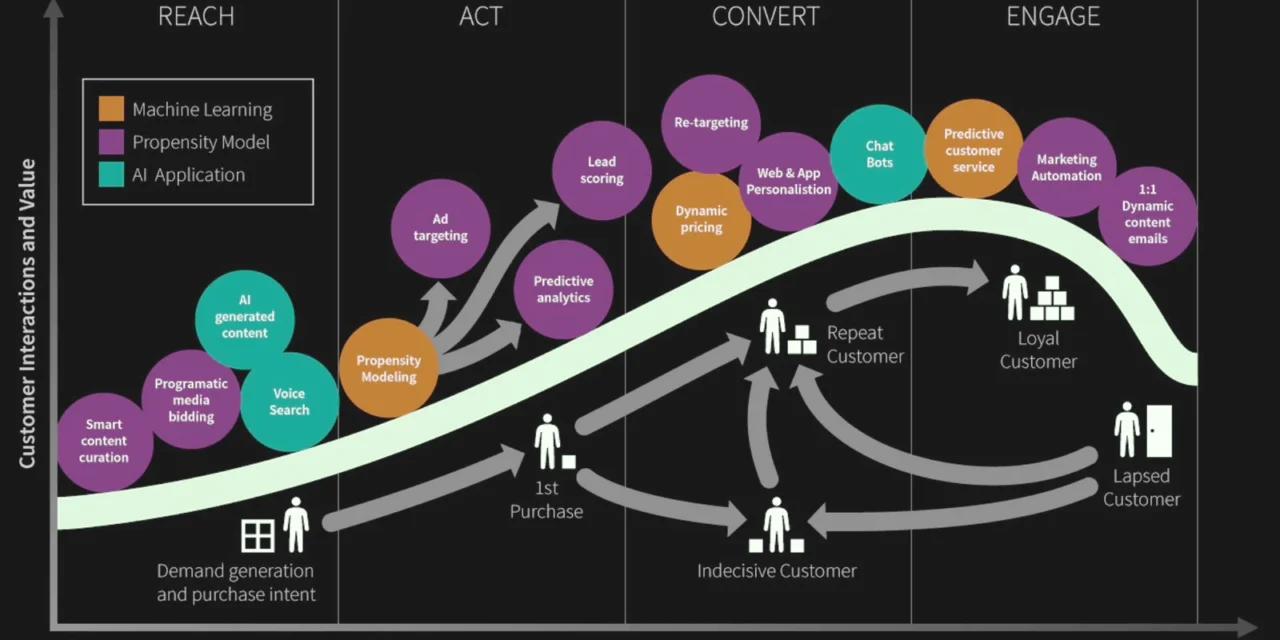Cover by Source – article by Kai Spriestersbach
As an online marketing consultant and tech journalist with an academic background spanning from e-commerce to web science, I have witnessed firsthand the increasing importance of Artificial Intelligence (AI) in the business world. My intense engagement with AI began in 2015 when Google announced its AI-based ranking system, RankBrain. Since then, the technology has gained significant traction and has become an integral part of my daily work in content planning, creation, optimization, and presentation, with developments like BERT and GPT-3.
In my experience, AI offers countless opportunities for (partial) automation of various processes for companies that have successfully embraced digital transformation. This can lead to cost savings and productivity gains ranging from 10% to 90%, depending on the nature of the process. Despite this significant potential, I have observed some hesitancy among many companies when it comes to implementing AI.
The reasons for this are diverse. Often, there is a lack of understanding about the technology, its capabilities, as well as its limitations and risks. This is further exacerbated by the shortage of skilled professionals. Additionally, there is often an existing backlog in digitalization efforts: many processes are still not adequately digitized to even introduce AI. Lastly, poor data quality and lack of data management often present hurdles to the effective utilization of AI.
It is clear that we need to focus more on the “how” rather than the “whether” of implementing AI in companies. In the following articles, I will delve deeper into the challenges and possibilities that AI offers to the business world. Stay tuned and join me on this exciting journey into the realm of Artificial Intelligence.
The potential applications of Artificial Intelligence (AI) in marketing are virtually limitless. Various applications can be utilized to increase efficiency and productivity. AI has the potential to take on tasks for which there is currently a shortage of qualified professionals, especially in areas such as data analysis and data science. In this context, I recommend Dave Chaffey’s detailed overview on Smart Insights, which summarizes the diverse AI applications in marketing.
Where should I use AI in marketing?
One of the greatest opportunities that AI offers is the ability to use it throughout the entire customer journey. By employing machine learning and AI, companies can better understand their customers and target them more effectively. This is not about future or speculative technologies but rather currently available marketing techniques that are already being utilized by many successful companies.
It is important to emphasize that the optimal timing for AI implementation is not limited to a specific phase of the customer journey. Instead, AI and machine learning can be used in all stages to optimize customer interaction and improve the overall customer experience. From initial contact to purchase and post-sales support, AI can help create relevant and personalized customer experiences.
Why using AI is often not as simple as it sounds?
Implementing Artificial Intelligence (AI) in a company can be a real challenge, but it also offers tremendous opportunities. Before implementing AI, companies need to define clear objectives: what problem should be solved or which task should be optimized? Data quality and data management also play a central role as AI systems heavily rely on data. It is crucial to have suitable technical infrastructure, as well as the necessary expertise and skills to effectively use AI.
At the same time, ethical and legal considerations should be taken into account. This includes issues of data protection, data security, and responsibility for AI-driven decisions. Furthermore, effective change management is required to accompany significant changes in the company’s processes and ensure acceptance of AI initiatives within the organization. Finally, as with any business initiative, success should be measured using clear metrics.
The implementation of AI in companies also presents various challenges. One of the biggest hurdles is the lack of qualified professionals. Additionally, there are challenges in data management and difficulties in integrating AI solutions into existing IT infrastructure and business processes. The scalability of AI solutions and managing profound changes in a company’s workflow through AI implementation also pose challenges.
Furthermore, the implementation and operation of AI raise many ethical and legal questions, particularly regarding data protection and accountability. Often, there is a lack of expertise, necessitating the involvement of external consultants, which can be costly. Moreover, there is often a lack of understanding and skepticism towards AI technology, which can hinder implementation. Finally, measuring and controlling the progress and effectiveness of AI initiatives without clearly defined goals and success metrics can be challenging.
Despite these challenges, I am convinced that the benefits and opportunities AI offers to businesses are worth the effort.

